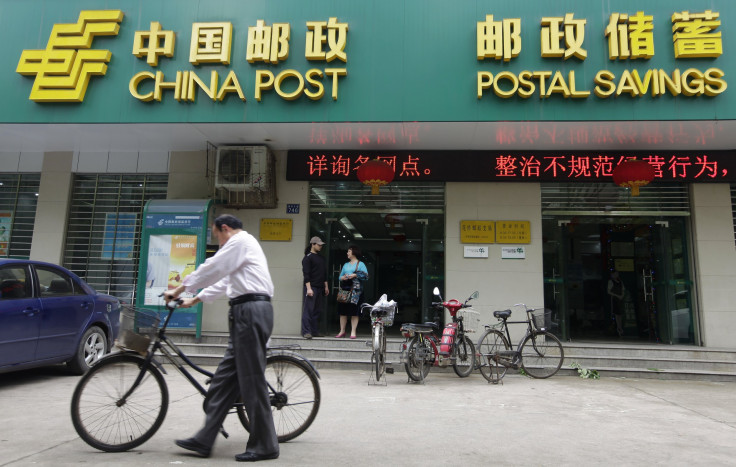China's Postal Savings Bank Raises $7B Through Stake Sale Ahead Of IPO

The Postal Savings Bank of China (PSBC) -- the country’s largest unlisted commercial lender -- has raised 45 billion yuan ($7 billion) by selling about 17 percent of itself ahead of a planned Initial Public Offering in Hong Kong next year. The bank, which is currently an arm of state-owned China Post Group, raised the capital through stake sale to 10 domestic and foreign investors, including UBS Group and JPMorgan Chase & Co.
According to a statement released by the bank Wednesday, other foreign investors include Singapore’s DBS Group and Temasek Holdings, the Canada Pension Plan Investment Board, and the International Finance Corporation, which is the World Bank’s private sector development arm.
“This is not only a win-win partnership between PSBC and strategic investors, but a great example of beneficial cooperation between China and the rest of the world,” Lu Jiajin, the bank’s president, reportedly said Wednesday.
The bank said that the stake sale, which values it at $41 billion, was the biggest private fundraising by a Chinese financial institution.
The domestic investors include China Life Insurance Company, Alibaba’s Ant Financial unit, Tencent Holdings, and China Telecom Corporation.
“In the downward economic cycle we’re in, the bank’s asset quality risk is the lowest,” Yuan Lin, a Beijing-based analyst at BOC International Holdings Ltd., told Bloomberg. “People are optimistic about its future.”
The bank, founded in 2007, has 40,000 branches across the country -- more than any other bank in the country -- and serves nearly half a billion customers. According to its latest annual report, its total assets stood at 6 trillion yuan ($945 billion) at the end of 2014.
However, in recent months, faced with a rise in bad loans -- caused primarily by the economic slowdown in China -- Beijing has sought to take PSBC public in a move that is likely to attract up to $10 billion in fresh capital, according to media reports.
© Copyright IBTimes 2025. All rights reserved.






















